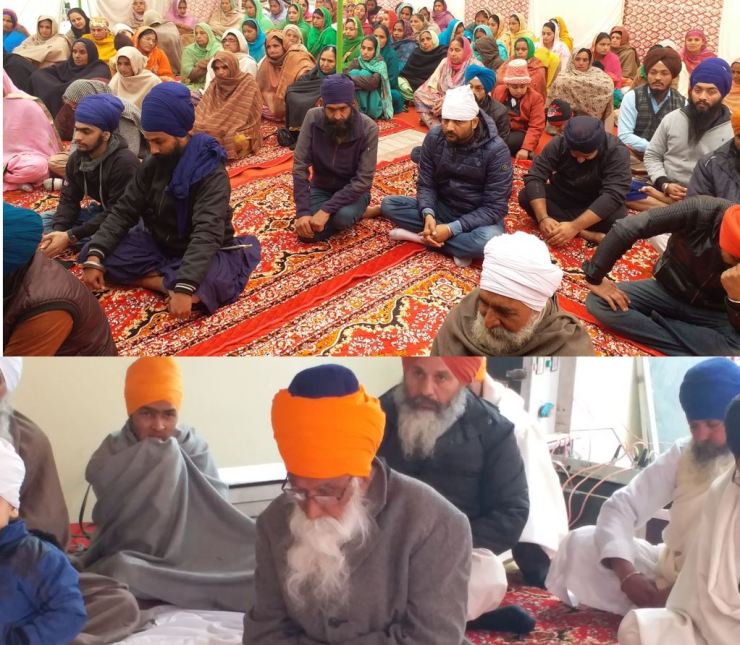During a Gurmat Vichar programme in Rupalheri in Panjab, Sahib Singh who belongs to this village and Dharam Singh Nihang Singh spoke about the lessons we can learn from the martyrdom of Baba Deep Singh in order to overcome the challenges Sikhs as a community and all humans as guests on the Earth are facing.
In the presence of descendants from Baba Deep Singh’s family (Khandan), the congregation (Sangat) learned that “giving ones head” is a metaphor for sacrificing our life for the good cause of justice. The discourse and the accounts of the descendents highlighted that the legend usually told in the religious centers (Gurdwara) by Dhadi singers that Baba Deep Singh continued fighting against the oppressors even after being beheaded is one of the many exaggerations in Sikh history. It contradicts Gurbani and the cosmic laws of the universe. No matter how spiritually developed one may be, no one can surpass the laws of nature (Hukamai Andar Sab Ko Bahar Hukam Na Koe). According to the descendents of Baba Deep Singh’s family, the warrior was heavily wounded at the back of his head. To stop the blood that was pouring out of his wound, he pressed one hand on the wound and continued fighting with the sword in the other hand until his last breath.

The legend, as we know it, is not only a lie by those who use emotions to mislead the masses. It also misses to highlight that those brave once like Baba Deep Singh had already sacrificed their head (mind) to the Almighty Guru (Parmeshar) with the help of spiritual wisdom long before they had to take up weapons to defend themselves and stand in for the righteous cause. That is why they had the courage to play the game of love and fight injustice without an iota of fear till their last breath as outlined in Gurbani:
ਜਉ ਤਉ ਪ੍ਰੇਮ ਖੇਲਣ ਕਾ ਚਾਉ॥ ਸਿਰੁ ਧਰਿ ਤਲੀ ਗਲੀ ਮੇਰੀਆਉ॥ ਇਤੁ ਮਾਰਗਿ ਪੈਰੁ ਧਰੀਜੈ॥ ਸਿਰੁ ਦੀਜੈ ਕਾਣਿ ਨ ਕੀਜੈ॥੨੦॥ (Adi Granth, M. 1, 1410)
ਮਨੁ ਬੇਚੈ ਸਤਿਗੁਰ ਕੈ ਪਾਸਿ॥ ਤਿਸੁ ਸੇਵਕ ਕੇ ਕਾਰਜ ਰਾਸਿ॥ (Adi Granth, M. 5, 286)
The audience realised that they had been misled throughout their life by shallow preachings of Parcharak and Dahidi (singer who focus on heroic themes) and discussed their questions and concerns in a very respectful manner in personal conversations after the closure of the official program.